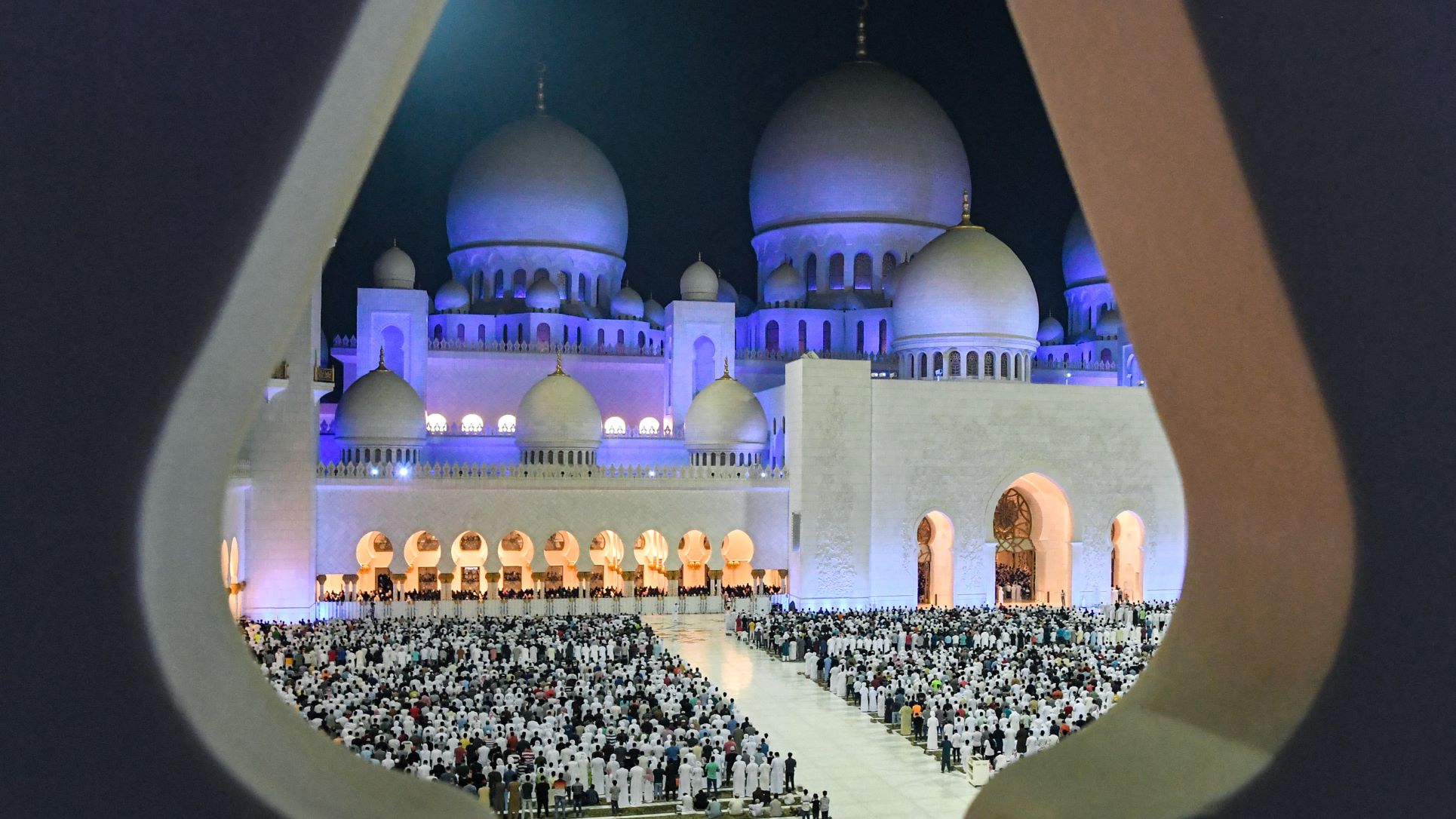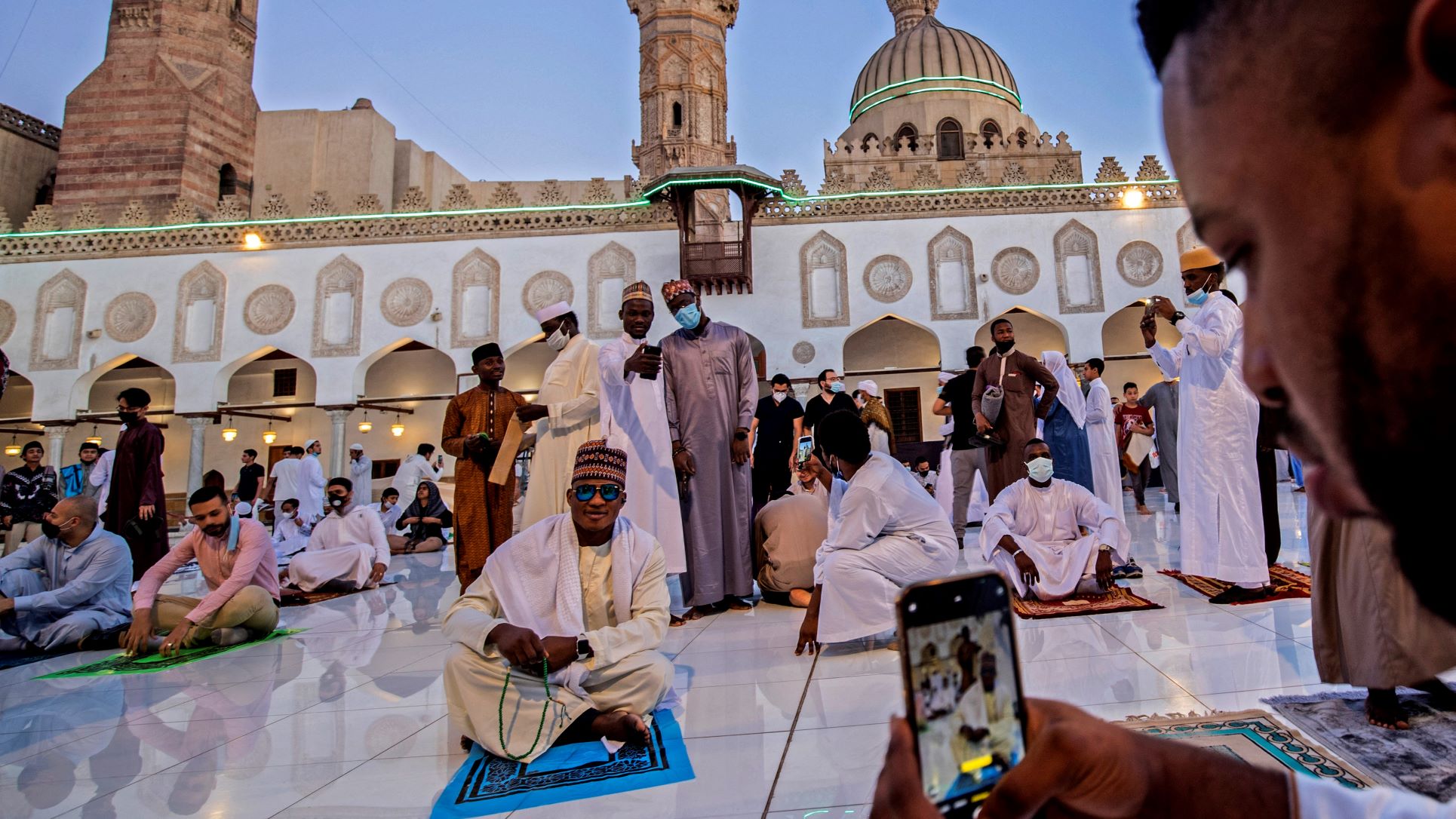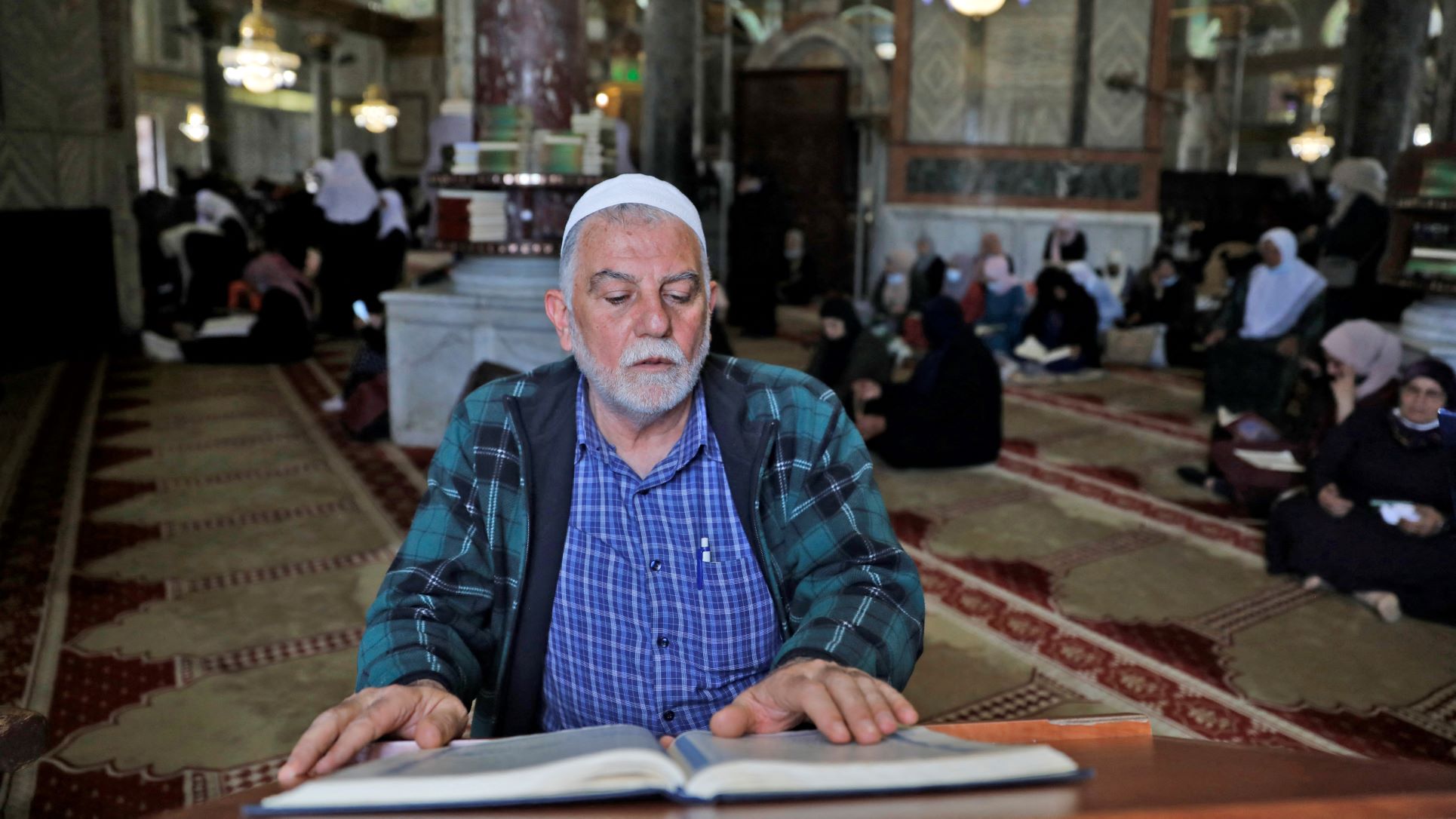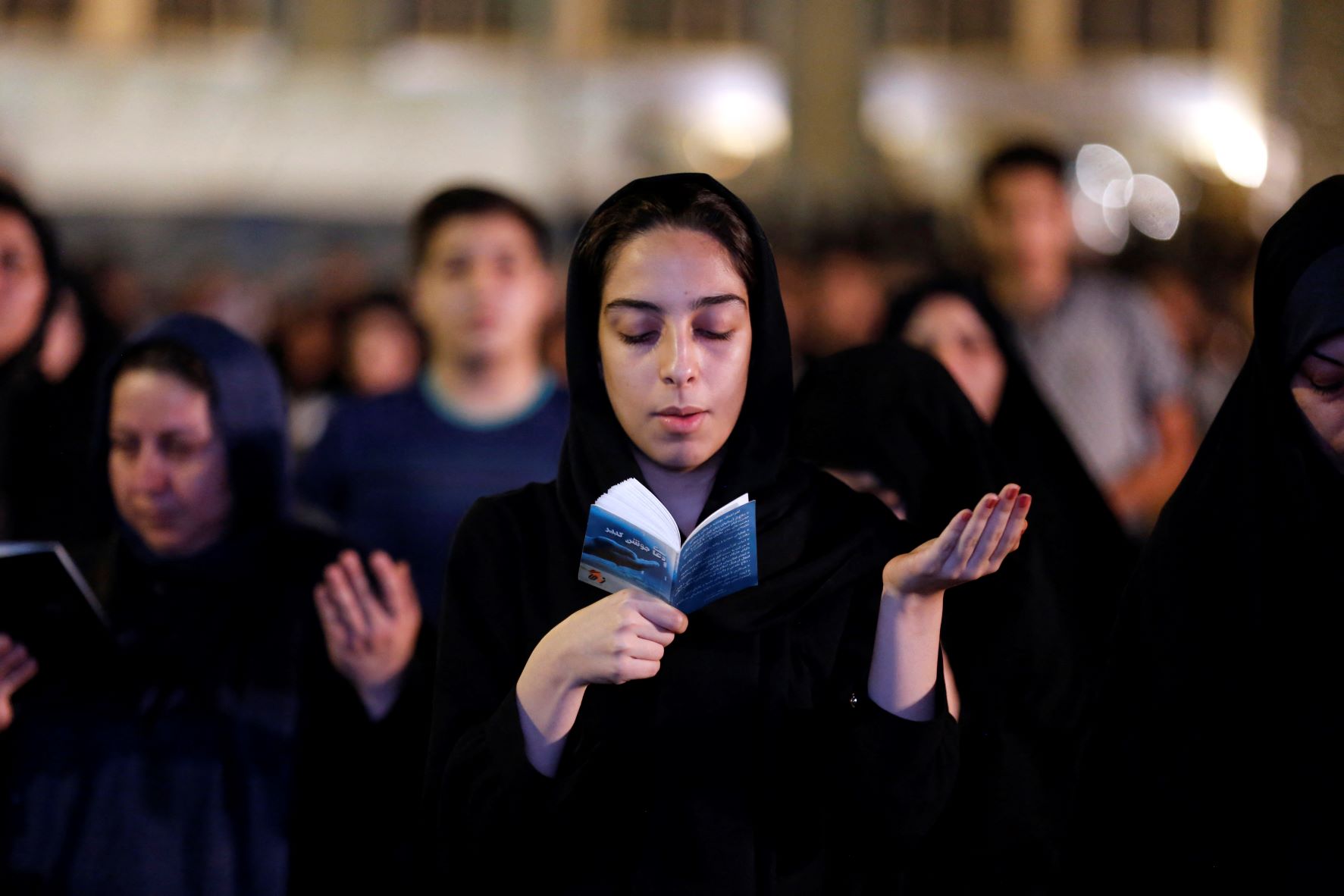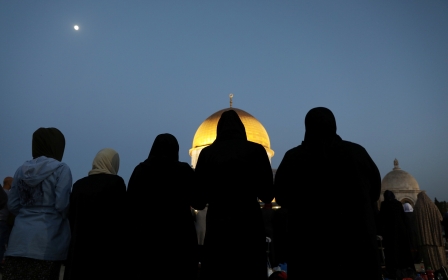‘Not even water?’: Five Ramadan questions you may be too embarrassed to ask

It’s that time of year again, when Muslims around the world eat whole grains in the middle of the night, adjust to life without a morning coffee and take part in congregational prayers late in the evening.
The holy month of Ramadan most likely begins on the evening of 2 April, depending on the sighting of the new moon.
New MEE newsletter: Jerusalem Dispatch
Sign up to get the latest insights and analysis on Israel-Palestine, alongside Turkey Unpacked and other MEE newsletters
When it does start, many of the world’s 1.6bn Muslims will refrain from eating during daylight hours, and will participate in additional acts of devotion and reflection.
For many outside of the Islamic faith, it’s an opportunity to ask their Muslim friends and colleagues about their faith and spirituality.
If you worry that those questions may be a bit too obvious, or embarrassing, Middle East Eye has got you covered.
‘Not even water?!’
In the past hundred years, if there was one classic response among English speakers to Ramadan, it would be: “Not even water?!”
The age-old question is put to Muslims without fail every year, to the extent that it has become a cliche on social media.
And the answer is yes. Not even water. Or tea, or coffee, or mocktails. From dawn to sunset, followers of the faith who are able to do so completely refrain from any form of eating or drinking.
They also refrain from smoking, bad language and sex, among other things.
During the night, Muslims often drink more water than normal, to make up for the lack of fluids during daylight hours. Likewise, many will drink tea and coffee during the night.
Some even take the extremely daring step of having a coffee just before dawn, and sleep immediately after, hoping the caffeine will kick in once they wake up again in the morning, a tactic which, as counterintuitive as it sounds, may have some scientific merit, according to some nutritionists.
What about when no one’s looking?
Of course, Muslims do not eat or drink during the daylight hours - whether anyone is looking or not.
As with praying, or giving to charity, Muslims believe that fasting is an act of worship between themselves and God, and should not be done performatively to impress others.
Worshippers believe that intending to fast is just as important as the act of refraining from consumption itself.
Therefore, if someone accidentally eats an entire meal (it can happen, especially early during the month) it’s totally fine. But if they knowingly have just a sip of water, their fast is broken.
Likewise, a person must make an intention to fast before the day breaks. So one cannot simply wake up late in the day and think: “Well, I’ve fasted half the day already, so maybe I’ll fast today.”
Equally, if Muslims make an intention to fast but end up having to break it (for instance, if they feel ill, or need to travel), they are obliged to make that fast up at a later date.
Do you fast if you feel ill?
Another commonly asked question is around illness: surely it’s not a good idea to fast if it would impact your health?
Sickness is a valid exemption from fasting, be it a long-term or short-term illness. This also applies to those who need to take medication throughout the day.
Muslims believe that if refraining from consumption would lead to worsening sickness or damage to their body, they are in fact obligated to break their fast to prevent themselves from harm.
Others exempt from fasting include those travelling long distances, women having their period, and elderly people for whom fasting may be too difficult.
Isn’t it damaging to your health?
In an era of monitoring calorie intakes and smartphone apps badgering you to drink water, fasting for up to 18 hours in a day may seem disruptive to a balanced diet.
Muslims are often questioned about whether fasting leads to negative health impacts. Inevitably, refraining from eating can lead to tiredness and fatigue, or dehydration, particularly in hot climates.
For adherents of Islam, the purpose of fasting is to have greater consciousness of God and to empathise with the less fortunate - so changes in tiredness or thirst are part and parcel of this form of worship.
Several studies have found that fasting has little long-term adverse effect on healthy individuals. In fact, different forms of intermittent fasting, such as the 5:2 fast, are being encouraged by nutritionists and scientists to improve physical and mental wellbeing.
When does Ramadan start?
The start date of Ramadan is something that not only non-Muslims might Google; it’s something that Muslims will search for themselves every year. Unlike Christmas or Easter, Ramadan is based on the Islamic lunar calendar, meaning that the exact start date is about 10 days earlier with each passing year.
This means that over a period of three and a half decades, Ramadan will fall across every different month of the Gregorian calendar.
Of course, this will have an impact on fasting - when it falls in December, fasts in many parts of the world are as short as nine hours. In summer months the fast can exceed 18 hours.
Like the Muslim festival of Eid, the beginning of Ramadan is based on the sighting of the moon. Due to different sightings in different parts of the world, the holy month can often start a day or two apart in different countries.
This article is available in French on Middle East Eye French edition.
Middle East Eye delivers independent and unrivalled coverage and analysis of the Middle East, North Africa and beyond. To learn more about republishing this content and the associated fees, please fill out this form. More about MEE can be found here.


